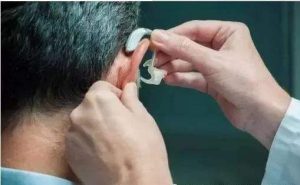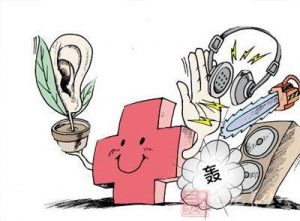The difference between personal hearing amplifiers and hearing aids are important. Patients receive hearing aids specially programmed for them. This is based on the patient’s hearing test (audiogram). A sound amplifier, on the other hand, can’t do this. Both are wearable sound-amplifying devices that look alike with similar advanced technology.
Differences Between Hearing Aids and Hearing Amplifiers
The FDA regulates hearing aids. However, people with a hearing loss can still gain access to them if they get a prescription. In contrast, hearing amplifiers (aka Personal Sound Amplifier Products or PSAPs), according to a 2009 circuit court ruling, are devices that do not need a prescription. They’re considered an “electronic product” and are not FDA regulated. Nevertheless, they are meant for patients who would benefit from sound amplification.
This is a distinction made by the FDA’s desire to regulate one but not the other.
Similarities Between Hearing Aids and Hearing Amplifiers
Hearing aids and amplifiers not only look similar, but their internal components are the same too. The current major hearing aid manufacturers just assemble hearing aids. They do not make the components that go into their devices. Several large companies making the parts also supply the same components to hearing amplifier companies. In fact, there is no difference in quality.
Features of Hearing Amplifiers
Custom Programming
Evidently, hearing amplifiers cannot be programmed after purchase. However, higher-quality devices come pre-programmed from the manufacturers. The cheaper PSAs do not have this feature.
Higher-quality devices don’t just amplify all sounds equally. The amplifier companies pre-program their devices to selectively amplify high tones over low frequencies. This is because 90-95% of people with mild to moderate hearing loss have problems with higher frequencies.
Hearing Amplifiers and Loud Noise
Some argue that hearing amplifiers are not safe and can cause further damage to your hearing. High-end amplifiers incorporate automatic gain controls. This limits amplification from reaching a level that will damage your hearing.
FDA Approval and Registration
Hearing aid advocates continue to say that PSAs are not FDA approved. Therefore, they are not safe to wear — or are they? By a circuit court order hearing amplifiers are not “medical devices” so they do not need to be FDA approved. Nor do they need to be dispensed by licensed hearing aid dealers or certified audiologists. High-end amplifier manufacturers need to have their product FDA approved. Furthermore, hearing aid amplifiers must be annually registered to be sold in the USA.
Affordable Quality
The explosion of PSAPs in the consumer market place is causing a major transformation in the hearing aid industry. You can now purchase a high-end hearing aid amplifier for as little as 10% of the cost of a big-name hearing aid. Equally important, the quality is virtually identical.
Our most satisfied customers are those who have previously owned an expensive brand name hearing aid. We repeatedly hear claims that the sound quality of the Otofonix amplifier is as good or better for 1/10 the cost.
Link:Hearing Amplifiers Are as Good as Hearing Aids – Here’s Why
REF: Hearing Aids Supplier , Hearing amplifier, Hearing LossThe article comes from the Internet. If there is any infringement, please contact [email protected] to delete it.







